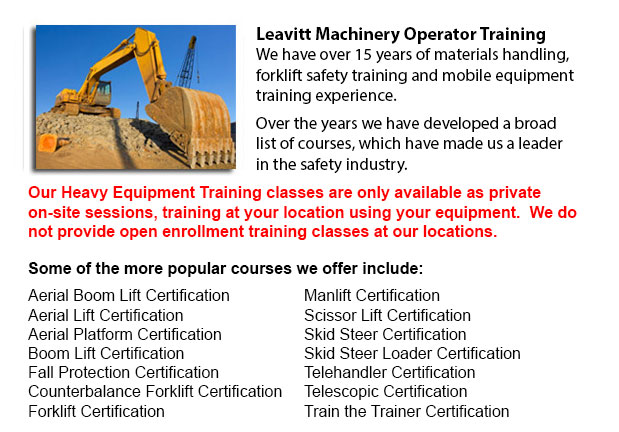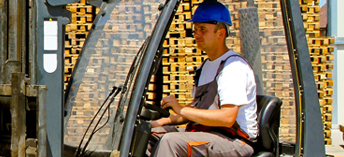
Kingston Heavy Equipment Ticket - Depending on the nature of the job at hand, the kind of construction machinery that a heavy equipment operator utilizes varies. Every type of equipment is built to do particular jobs in the most effective method common to the construction industry. Different kinds of machinery are small enough to be utilized inside of warehouses or within plants, and could be particularly designed to move pallets and boxes. Bigger equipment is normally used outdoors to clear areas and grade land to prepare for construction.
There are many projects that require the skill of a heavy equipment operator, like for instance public works projects and endeavors of privately owned companies. Jobs completed by public works offices may comprise road construction and the building of bridges. There are many other publicly funded projects which comprise airport runways, dam construction, municipal structures, levees and power plants. Private ventures may include the construction of office buildings, malls, retail stores and industrial parks.
A few of the smaller scale jobs require equipment made of the use in large industrial spaces or in commercial buildings. Usually, the machine selection includes forklifts, cherry pickers and pallet jacks. Trenchers and backhoes are normally offered in different sizes appropriate for work needing powerful and less bulky machinery.
Operators of heavy equipment would be needed to be certified by their regional or local agency. A lot of these operators are cross-trained and certified to operate many different models of heavy machinery. Other operators prefer to specialize in operating just one kind of equipment and just need periodic updates on their operating permit certifications.
Workers in this industry are often trained through a formal apprenticeship program offered by unions or companies or else with on-the-job training. Some trade and technical schools offer paid training programs. It is essential that employers hire fully-trained heavy equipment operators to adhere to local rules and adhere to regional and local laws regarding job conditions and worker safety.
-
Narrow Aisle Forklift / Order Picker Training / Electric Pallet Jack / Electric Pallet Truck Training in Kingston
A pallet lift is a piece of equipment dedicated in the moving of pallets of various dimensions and weights. They might be utilized as an accessory for forklifts, cranes and other styles of heavy machinery or be applied on their own. Pallet lifts are... More -
Kingston Forklift Training School
Kingston Forklift Training School - Forklift Training School - Industry and federal regulators have established the criteria for forklift safety training based on their existing regulations and standards. People wishing to operate a forklift must fin... More -
Kingston Scissor Lift Certification
Kingston Scissor Lift Certification - Scissor lift platforms are utilized at work locations to enable tradespeople - such as iron workers, welders and masons - to reach their work. Making use of a scissor lift platform is usually secondary to their t... More -
Kingston Boom Lift Safety Training
Kingston Boom Lift Safey Training - Boom lifts are a type of elevated work platform or aerial lifting device that are normally utilized in warehousing, construction and industry. Boom lifts could be made use of in practically whichever environment du... More -
Kingston Fall Protection Ticket
Kingston Fall Protection Ticket - Fall-related incidents are the number one reason of death in the construction business. The possibility for fall accidents very much increases based upon the type of work which is being accomplished within your workp... More -
Telehandler Training in Kingston
Telescopic handlers normally called telehandlers for short, are an extremely popular piece of heavy construction machinery. They are widely utilized in the construction and agricultural trades. These machines have farthest reaching ability and are ab... More -
Kingston Warehouse Forklift Training Programs
Kingston Warehouse Forklift Training Programs - Warehouses could either be retail, industrial or commercial facilities, functioning from bulk product retailing to product distribution services. Regardless of the type of warehouse, personnel inside wa... More -
Kingston Loader Operator Certification
Kingston Loader Operator Certification - Why Loader Operator Certification Is Required By Businesses - Loader Operator Certification is normally required for personnel working within construction, warehouse or industrial setting to guarantee the safe... More

Forklift Certification Kingston
TOLL FREE: 1-888-254-6157
Kingston, Ontario
forkliftcertificationkingston.com
Email Us
About Us


